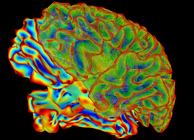 After doing a cognitive analysis with their child, I often get the question from parents, "Do you think I should look into a brain training program?". Usually a specific program is mentioned when they ask the question. My answer is always the same. Brain training programs almost all work to a certain degree. Basically any time you challenge your brain to learn a new skill or tackle a new problem, it will be forced to change and grow. This change, this growth, is called neuroplacticity. That said, these programs are only as effective as the time and effort put into them and not all of them are right for every child or every situation. Here are some things to look out for. If a program claims to be a "fix all" beware. Unless your child has only one or two areas of cognitive weakness (and we all have a variety of strengths and weaknesses), one therapy or one program cannot address everything. If the person you are in communication with is unable to tell you the principles of how their program works in a way that you can understand, avoid the program. This is a sign that either the person is not well trained and doesn't understand it themselves, or that the science behind the intervention has not fully been researched. Avoid a "short" intervention. True brain plasticity takes time. What we are talking about here is rewiring the brain and growing new neurons. This does not happen in two weeks or even a month. This is a long-term investment and often times not cheap. Below are some popular brain-training programs. Remember, one size does not fit all, you get out of it the time you are willing to invest and some of these are not inexpensive options so do your research first! Audiblox- Audiblox is a program out of South Africa that is implemented at home. Kits are mailed out that contain most of the tools needed to implement the program, plus a training CD and book. There are different tracks for training, but the core involves memory tasks using small multicolored blocks. They also have a computer based program called Compublox. Brain Balance Achievement Center- The hallmark of Brain Balance Achievement Center involves use of sensory motor activities as part of a more comprehensive approach. They also do one-on-one exercises designed to address cognitive and academic challenges. They even integrate a nutritional approach to address learning and cognitive challenges. Cogmed- Cogmed is a computer based intervention that can be done in a therapist’s office, at school, or in home by subscription. This program is specifically designed to address challenges in short-term memory. ICAN- The International Christian Association of Neurodevelopmentalists based their interventions off of those from the National Association of Child Development. They, however, over the years, have also adopted some of their own methods and techniques, but still use the prescriptive model in which a neurodevelopmentalist evaluates the child and then prescribes exercises and activities to be implemented by parents in-home. ICAN is an accrediting body for local practitioners that manage their own businesses. Interactive Metronome- Interactive metronome involves use of a computer-based rhythmic metronome that helps students improve internal rhythm and timing in an effort to improve attention, processing speed, coordination, as well as other skills. Interactive metronome is usually administered in a therapist’s office, but you can now get products based on the program for in-home use. Learning Rx- This franchise of centers implements exercises that address foundational cognitive skills such as short and long term memory, processing speed, and attention. They use direct recall exercises to address challenges with short-term memory, and have students practice processing speed by doing a variety of academic exercises using a metronome. Learning Rx has an initial in-house assessment that they use to determine baseline achievement and to measure progress. Lumosity- Lumosity is a subscription based online, self-implemented, online brain training program. Using games that stimulate memory, visual processing, processing speed, attention, as well as other core skills, Lumosity is an enjoyable way to exercise your brain. NACD- The National Association of Child Development and its cousin organization The Institute for the Advancement of Human Potential (IAHP) are two of the original brain-training programs. They use a prescriptive technique in which a family visits their center, or, in the case of NACD, a local professional that does an assessment and then individualizes a global cognitive development program implemented by parents. . http://www.nacd.org/ The Listening Program- The Listening Program is designed to address challenges with auditory processing. It requires regular listening to music specifically calibrated to boost sensitivity to some sounds, while reducing sensitivity to others.
0 Comments
Leave a Reply. |
PurposeTo provide useful information to families regarding educational strategies, interventions, and tools. ArchivesCategories
All
|
 RSS Feed
RSS Feed